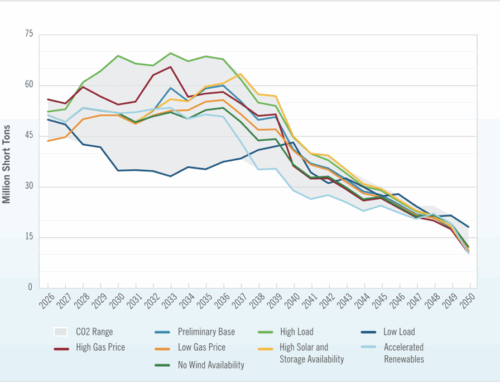Ultra-rich Americans ditching stocks and real estate, says investing legend — 5 assets the
October 1, 2025
Moneywise and Yahoo Finance LLC may earn commission or revenue through links in the content below.
The U.S. stock market recently hit new highs, but according to Michael Sonnenfeldt, founder of Tiger 21 — an exclusive network of ultra-high-net-worth investors — the ultra-rich aren’t chasing the hype.
-
Thanks to Jeff Bezos, you can now become a landlord for as little as $100 — and no, you don’t have to deal with tenants or fix freezers. Here’s how
-
I’m 49 years old and have nothing saved for retirement — what should I do? Don’t panic. Here are 6 of the easiest ways you can catch up (and fast)
-
Dave Ramsey warns nearly 50% of Americans are making 1 big Social Security mistake — here’s what it is and 3 simple steps to fix it ASAP
“Actually, they just pulled back a couple points in the last quarter from the stock market and from real estate,” Sonnenfeldt told CNBC, noting that the average Tiger 21 member controls more than $100 million [1].
So where is their money going?
Private equity remains a “strong” holding, he said, but members are increasingly allocating to areas that were once ignored. “For the first time, cash is coming up a little, fixed income is coming up a little and gold and Bitcoin.”
The shift points to a more defensive posture. A stronger allocation to cash and fixed income signals a renewed appetite for liquidity and steady yields after years of near-zero interest rates, while growing exposure to gold — and even Bitcoin — reflects a search for alternative stores of value.
Sonnenfeldt says his members are approaching their portfolios with a little more caution these days. Naturally, when they’ve created as much wealth as they have, he adds, preservation is their highest priority.
That makes gold a natural destination. The precious metal has served as a store of value for thousands of years. It isn’t tied to any single country, currency or economy and it can’t be printed like fiat money. Investors often flock to it during periods of economic stress or geopolitical uncertainty — pushing prices higher.
Over the past 12 months, gold has climbed more than 40% — and more gains could be on the way. Both Goldman Sachs [2] and JPMorgan [3] forecast that gold could hit $4,000 an ounce by 2026.
One way to invest in gold that also provides significant tax advantages is to open a gold IRA with the help of Priority Gold.
Gold IRAs allow investors to hold physical gold or gold-related assets within a retirement account, thereby combining the tax advantages of an IRA with the protective benefits of investing in gold, making it an option for those looking to help shield their retirement funds against economic uncertainties.
When you make a qualifying purchase with Priority Gold, you can receive up to $10,000 in precious metals for free.
Once considered a niche asset, Bitcoin has steadily moved into the financial mainstream.
“Bitcoin as a market is still only a 10th the size of gold, but they both are secure assets in members’ minds,” Sonnenfeldt said. “For the first time, people aren’t talking about Bitcoin just as speculation, but actually an alternative asset that can be held during tough times. Not everybody believes in it, but those that do are making a big splash.”
Part of Bitcoin’s appeal is its built-in scarcity. Like gold, Bitcoin can’t be created at will by central banks. Instead, its maximum supply is capped at 21 million by mathematical algorithms.
For those looking to hop on the Bitcoin bandwagon, platforms like Robinhood Crypto allow users to buy and sell crypto with as little as $1 without any trading fees or commissions.
Robinhood Crypto has the lowest trading cost on average in the U.S. — meaning you could get up to 1.6% more crypto compared to trading on other platforms.
Read more: Here are 5 simple ways to grow rich with real estate — whether you have $10 or $100,000 to invest
Sonnenfeldt stressed that a slight pullback from stocks doesn’t mean his members are abandoning them.
“We’re still overwhelmingly weighted for the mid- and long-term in equities. So there’s long term bullish, but in the short term, it’s a little choppy water, so people are trying to steady the boat in a rocky road,” he said.
He noted that many Tiger 21 members built their fortunes as entrepreneurs, where outsized returns were possible, but sustaining those gains as investors is far more challenging. To illustrate the point, he invoked Warren Buffett’s success — and his famously simple strategy.
“You take Warren Buffett … his track record has been 20% but he’s been doing it for 65 years. Our members — to become Tiger members — had higher returns than 20% and they could never duplicate those returns as investors,” Sonnenfeldt said.
“So this divide between being an entrepreneur for five or 10 or 20 years and creating extraordinary wealth and then what do you do with it? It’s the reason why Warren Buffet has told his heirs to put it in the S&P, because even they won’t be able to get the benefit of his track record going forward.”
Buffett himself has often said, “In my view, for most people, the best thing to do is own the S&P 500 index fund [4].” He’s even written it into his estate plan, directing that 90% of his wife’s inheritance be placed in “a very low-cost S&P 500 index fund” after his passing.
An S&P 500 index fund gives investors instant exposure to 500 of America’s largest companies across a wide range of industries, providing diversification without the need for constant monitoring or active management.
The beauty of this approach is its accessibility — anyone, regardless of wealth, can take advantage of it. Even small amounts can grow over time with tools like Acorns — a popular app that automatically invests your spare change.
Signing up for Acorns takes just minutes: link your cards and Acorns will round up each purchase to the nearest dollar, investing the difference — your spare change — into a diversified portfolio. With Acorns, you can invest in an S&P 500 ETF with as little as $5 — and, if you sign up today, Acorns will add a $20 bonus to help you begin your investment journey.
Finally, Sonnenfeldt noted a small pullback in real estate allocations. But the asset class remains a time-tested way to preserve wealth — particularly in inflationary periods.
As inflation pushes up the cost of materials, labor and land, property values often climb in tandem. Rental income tends to follow as well, providing landlords with cash flow that adjusts with inflation.
In fact, Buffett has long highlighted real estate as a prime example of a productive, income-generating asset. In 2022, Buffett remarked that if you offered him “1% of all the apartment houses in the country” for $25 billion, he would “write you a check [5].”
Why? Because no matter what’s happening in the economy, people still need a place to live and apartments can consistently produce rent money.
Of course, you don’t need billions — or even to buy a single house — to benefit from real estate investing. Crowdfunding platforms like Arrived offer an easier way to get exposure to this income-generating asset class.
Backed by world class investors like Jeff Bezos, Arrived allows you to invest in shares of rental homes with as little as $100, all without the hassle of mowing lawns, fixing leaky faucets or handling difficult tenants.
The process is simple: browse a curated selection of homes that have been vetted for their appreciation and income potential. Once you find a property you like, select the number of shares you want to purchase and then sit back as you start receiving any positive rental income distributions from your investment.
Another option is First National Realty Partners (FNRP), which allows accredited investors to diversify their portfolio through grocery-anchored commercial properties without taking on the responsibilities of being a landlord.
With a minimum investment of $50,000, investors can own a share of properties leased by national brands like Whole Foods, Kroger and Walmart, which provide essential goods to their communities. Thanks to Triple Net (NNN) leases, accredited investors are able to invest in these properties without worrying about tenant costs cutting into their potential returns.
Simply answer a few questions — including how much you would like to invest — to start browsing their full list of available properties.
-
Robert Kiyosaki warns of a ‘Greater Depression’ coming to the US — with millions of Americans going poor. But he says these 2 ‘easy-money’ assets will bring in ‘great wealth’. How to get in now
-
The ‘Oracle of Wall Street’ who predicted 2008 crash sees trouble in US housing — and says boomers aren’t as rich as many think. Why that’s a problem
-
Want an extra $1,300,000 when you retire? Dave Ramsey says this 7-step plan ‘works every single time’ to kill debt, get rich in America — and that ‘anyone’ can do it
-
Goldman Sachs says this asset class is behaving more like Manhattan real estate than oil — and here’s how ‘opportunistic’ buyers can get in before its price keeps skyrocketing
Join 200,000+ readers and get Moneywise’s best stories and exclusive interviews first — clear insights curated and delivered weekly. Subscribe now.
At Moneywise, we consider it our responsibility to produce accurate and trustworthy content people can rely on to inform their financial decisions. We rely on vetted sources such as government data, financial records and expert interviews and highlight credible third-party reporting when appropriate.
We are committed to transparency and accountability, correcting errors openly and adhering to the best practices of the journalism industry. For more details, see our editorial ethics and guidelines.
[1]. @CNBCtelevision. YouTube post on Sept. 25, 2025
[2]. Bloomberg. “Fidelity says $4,000 gold possible as Fed cuts, dollar drops”
[3]. JP Morgan. “Will gold prices break $4,000/oz in 2026?”
[4]. CNBC. “Warren Buffett owns 2 ETFs—this one is better for everyday investors, experts say”
[5]. CNBC. “Warren Buffett gives his most expansive explanation for why he doesn’t believe in bitcoin”
This article provides information only and should not be construed as advice. It is provided without warranty of any kind.
Search
RECENT PRESS RELEASES
Related Post




